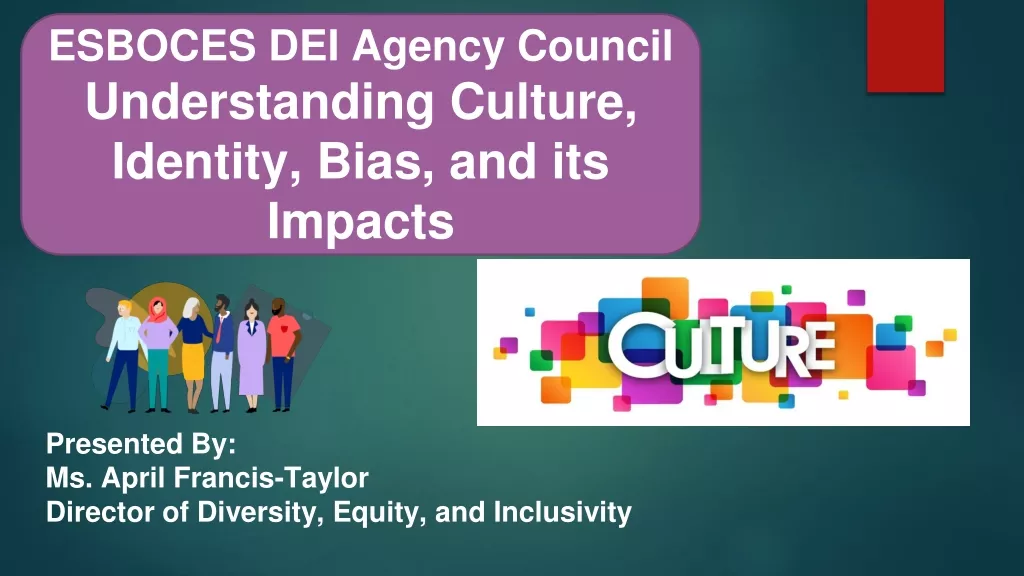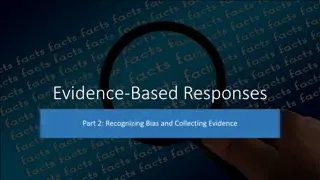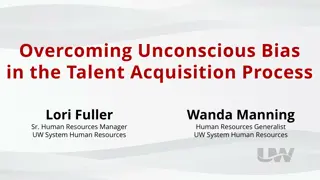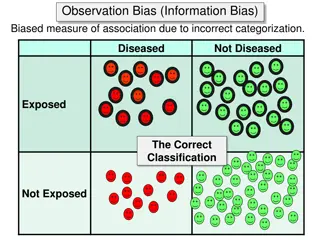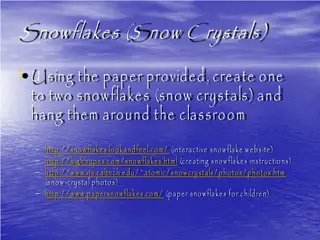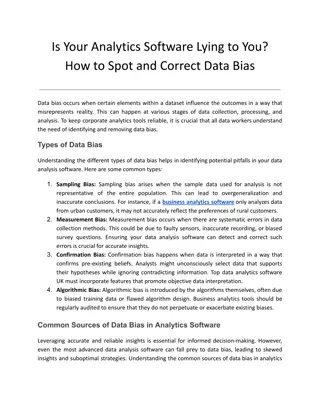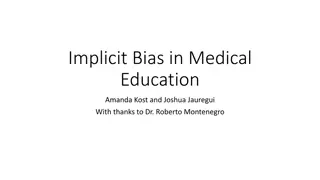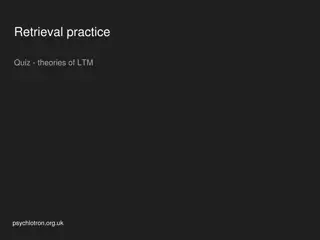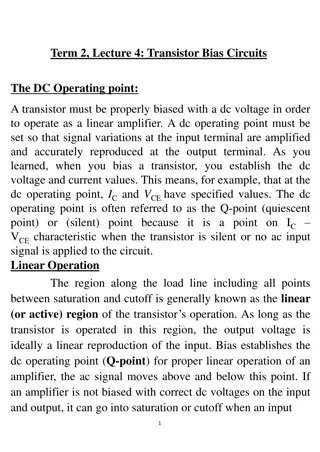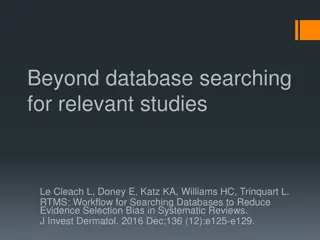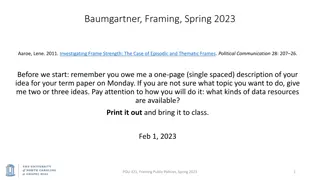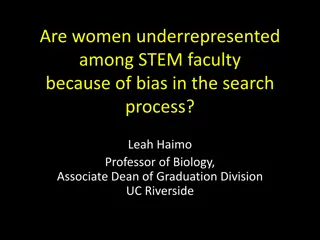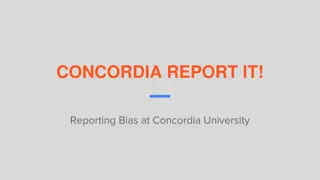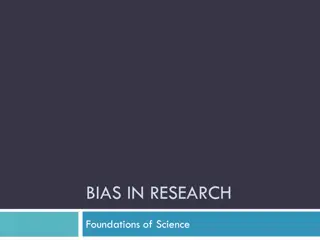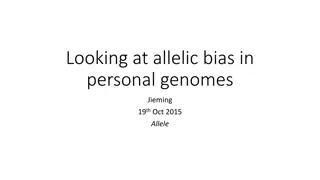Age Differences in Positivity Bias During Episodic Future Thought Study
The study explores how positivity bias varies across different age groups during episodic future thought, investigating memory recall and emotional valence in young, middle-aged, and older adults. Results suggest older adults exhibit more positivity in recalling past events but the same bias may not extend to future events. Linguistic analysis was conducted to determine word usage in memory descriptions among the participants.
Download Presentation

Please find below an Image/Link to download the presentation.
The content on the website is provided AS IS for your information and personal use only. It may not be sold, licensed, or shared on other websites without obtaining consent from the author. Download presentation by click this link. If you encounter any issues during the download, it is possible that the publisher has removed the file from their server.
E N D
Presentation Transcript
Age Differences in Positivity During Episodic Future Thought Lisa Emery, Stephanie Hale, & Emily Booze agelabs.appstate.edu
Episodic Future Thought Mental Time Travel into the future to imagine specific episodes Highly related to autobiographical memory Activates similar brain regions (e.g., Addis, Wong & Schacter, 2008a; Viard et al. 2011) Shows similar phenomenological characteristics (e.g., D Argembeau & Van der Linden, 2004) Performance on ABM & EFT tasks highly correlated (Hill & Emery, 2013)
Aging & EFT Older adults produce fewer episodic details in EFT (and ABM) than young adults (Addis et al. 2008b; Levine et al., 2002; Piolino et al., 2010) Attributed primarily to decline in associative memory and/or executive function Recent studies suggest memory isn t the only age difference (Gaesser et al., 2001; Rendell et al., 2012).
Aging & Emotion Positivity Bias : Compared to the young, older adults: Remember past events more positively (Kennedy, Mather, & Carstensen, 2004; Comblain, D Argembeau, & Van der Linden, 2005) Use more positive and fewer negative words when describing memories (Pennebaker & Stone, 2003; Schryer et al., 2012)
The Current Study Does the positivity bias extend to future events
Method Participants Young adults (ages 20-30; M = 23.8; N = 19) Middle-aged adults (ages 40-50; M = 45.2; N = 16) Older adults (ages 60-70; M = 63.6; N = 13)
Method Materials & Procedure Cue Word Retrieval/Construction 2 (Event Direction: Past vs. Future) x 2 (Event Distance: Near vs. Far) 4 trials of each type, 16 trials total 3 minutes to retrieve and describe the event
Method Linguistic Inquiry & Word Count (LIWC2007; Pennebaker et al., 2007) Word counts Positive Words (e.g., Love, Sweet, Nice) Negative Words (e.g., Hurt, Ugly, Nasty)
Results 1.40 1.20 Negative Emotion Words 1.00 0.80 Young Middle 0.60 Old 0.40 0.20 0.00 Past Future
Results 4 3.5 Positive Emotion Words 3 2.5 Young 2 Middle Old 1.5 1 0.5 0 Past Future
Results 4.00 3.50 Positive Emotion Words 3.00 2.50 Young 2.00 Middle 1.50 Old 1.00 0.50 0.00 Past Near Future Near 4.50 4.00 Positive Emotion Words 3.50 3.00 Young 2.50 Middle 2.00 Old 1.50 1.00 0.50 0.00 Past Far Future Far
Results 4 3.5 Positive Emotion Words 3 2.5 Young 2 Middle 1.5 Old 1 0.5 0 Past Near Future Near 4.5 4 Positive Emotion Words 3.5 3 Young 2.5 Middle 2 Old 1.5 1 0.5 0 Past Far Future Far
Results 0.18 0.16 0.14 0.12 "Death" Words 0.1 Near 0.08 Far 0.06 0.04 0.02 0 Past Future
Conclusions & Future Directions Past events = reduced negativity Future events = increased positivity
Conclusions & Future Directions Might age-related emotional changes impact memory specificity? Positive mood produces greater heuristic processing (Emery, Hess, & Elliot, 2012) Repeated use of Functional Avoidance of negative or traumatic memories may lead to overgeneral autobiographical memory (Williams et al., 2007)
Conclusions & Future Directions Emery & Griffin, 2014
Come see our posters! Poster Session 2: Friday April 4, 4:00 6:30 PM Poster 63: AGE DIFFERENCES IN PERFORMANCE ON FINANCIAL GAMES Elizabeth Payment, Lisa Emery, Erica Camp Poster Session 4: Saturday, April 5, 4:00 PM 6:30 PM Poster 9: AGE-RELATED DIFFERENCES IN RETRIEVAL OF EPISODIC AUTOBIOGRAPHICAL MEMORIES Heather Burkett, Simona Gizdarska, Meagan Griffin, Lisa Emery Reprints of presentations, papers, & posters @ agelabs.appstate.edu


